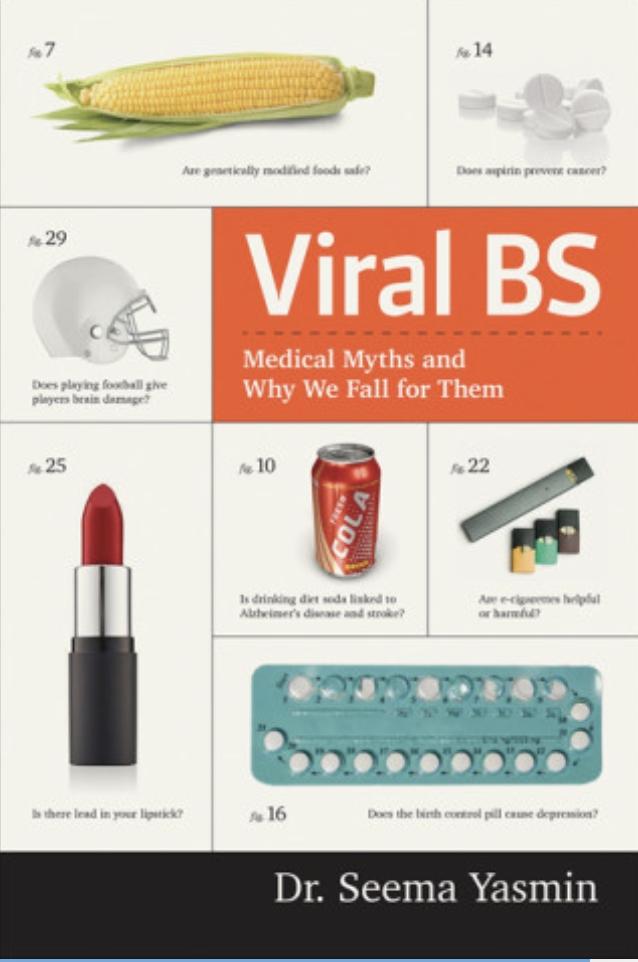Health Misinformation
Breadcrumb
Health Misinformation
If you often feel confused, anxious, and frustrated when it comes to taking care of your health, you are not alone. Surrounded by clickbait headlines and 24/7 media coverage, it’s easy to become overwhelmed or misled by all the information.
During the COVID-19 pandemic, people were so inundated with news, public health guidance, fact sheets, infographics, research, opinions, rumors, myths, falsehoods, and more the World Health Organization and the United Nations characterized this unprecedented spread of information as an “infodemic."
The infodemic is so concerning the Office of the U.S. Surgeon General issued a public advisory, Confronting Health Information: The U.S. Surgeon General’s Advisory Building a Healthy Information Environment. Advisories are reserved for significant public health challenges that need the American people’s immediate awareness.
Because it pollutes our information environment, misinformation is harmful to the health of the individual and the public. Together, we have to build a healthier information environment. - U.S. Surgeon General
It's important to get the conversation started with your friends and relatives. The NNLM Reading Club has selected books, written by medical and health experts, who share how important it is to find, use, and understand reliable information. Health literacy is important. It might even save your life.
Discover MedlinePlus
MedlinePlus is a service of the National Library of Medicine, the largest biomedical library in the world. Use MedlinePlus.gov anywhere, anytime, on any device - for free - to discover high-quality health and wellness information that is reliable, easy to understand, and free of advertising, in both English and Spanish.
 Discover information on:
Discover information on:
Discover NIH
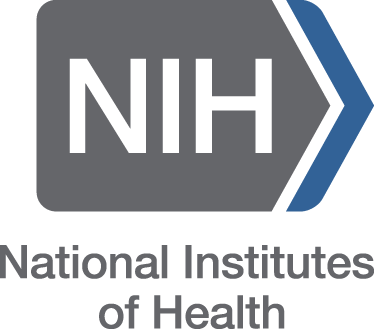 The National Institutes of Health (NIH) is the nation’s medical research agency making important discoveries that improve health and save lives. NIH is made up of 27 Institutes and Centers, each with a specific research agenda, often focusing on particular diseases or body systems.
The National Institutes of Health (NIH) is the nation’s medical research agency making important discoveries that improve health and save lives. NIH is made up of 27 Institutes and Centers, each with a specific research agenda, often focusing on particular diseases or body systems.
An article that is published in a scholarly journal is peer-reviewed by experts in the field and scrutinized for accuracy by a team of editors and fact-checkers. Peer-reviewed, scholarly articles are very trustworthy.
To find scholarly biomedical literature, use PubMed, a free, online bibliographic resource. The database contains more than 30 million citations and abstracts developed and maintained by the NIH National Center for Biotechnology Information (NCBI) at the National Library of Medicine (NLM). Links to the full-text articles may be present when available from other sources, such as the publisher's website or PubMed Central (PMC).
Use Trustworthy Resources
Research is a quest for truth. The job of a researcher is to use the most trustworthy resources to report the most accurate information. The role of the consumer is to consult a variety of trustworthy sources to reduce the chance of relying on misinformation or biased opinions and facts.
Not Sure, Don't Share
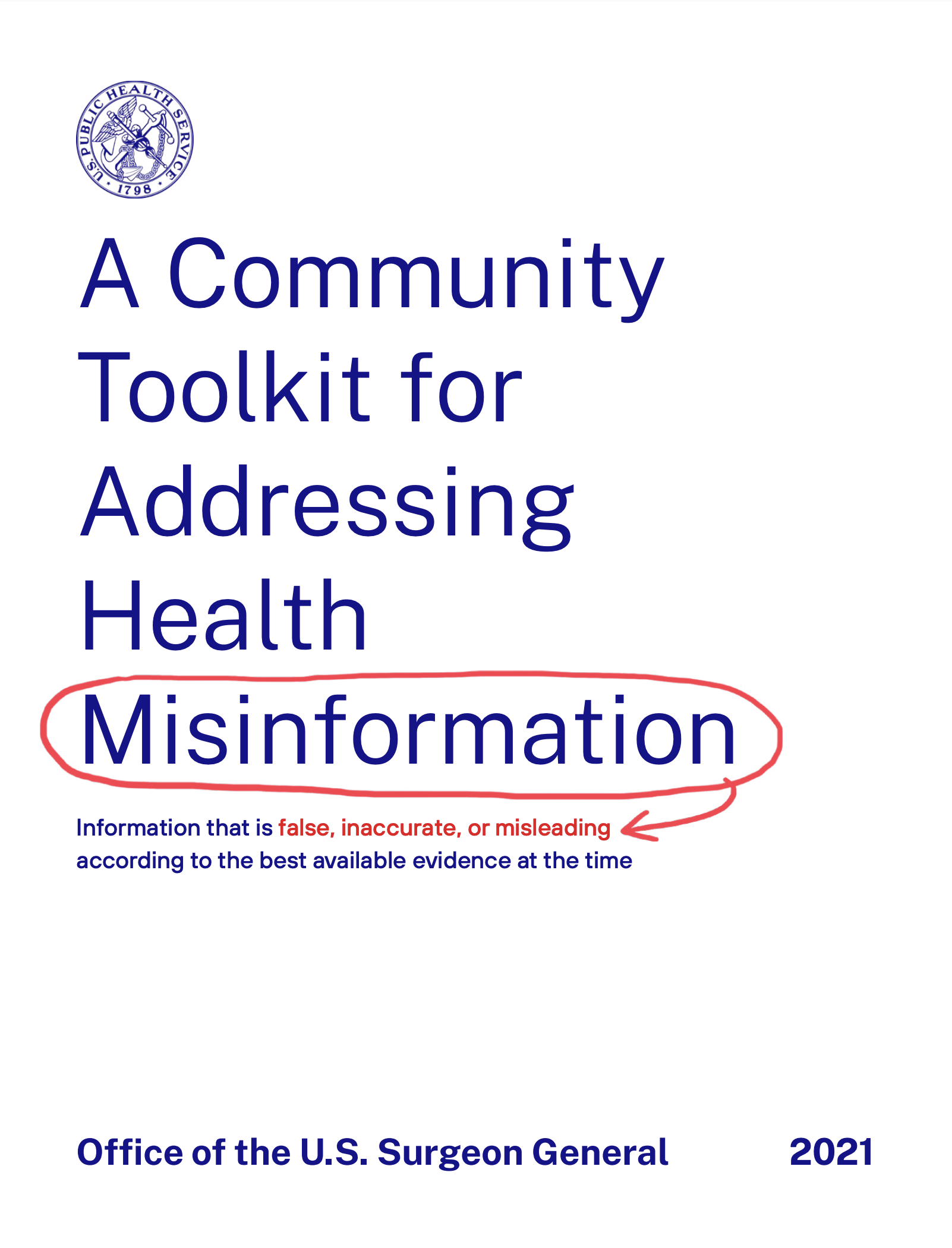
Limiting the prevalence and impact of misinformation will help all of us make more informed decisions about our health and the health of our loved ones and communities.
The U.S. Surgeon General's A Community Toolkit for Addressing Health Misinformation (PDF) provides specific guidance and resources for health care providers, educators, librarians, faith leaders, and trusted community members to understand, identify, and stop the spread of health misinformation in their communities.
This you can be sure to share.
Learn Fact from Fiction
The Network of the National Library of Medicine created a fact sheet, A-B-C of Finding Trusted Health Information PDF (English and Español), to make fact-checking health information as easy as reciting the A-B-Cs.
The NIH National Center for Complementary and Integrative Health initiated a free and easy-to-use tool to help you better understand complex scientific topics that relate to health research so that you can discern what you hear and read and make well-informed decisions about your health. Know the Science, both in English and Español, features a variety of materials including interactive modules, quizzes, and videos to provide engaging, straightforward content.
Featured Books
-
Title: HypePublisher St Martin's PressYear published 2018Book image
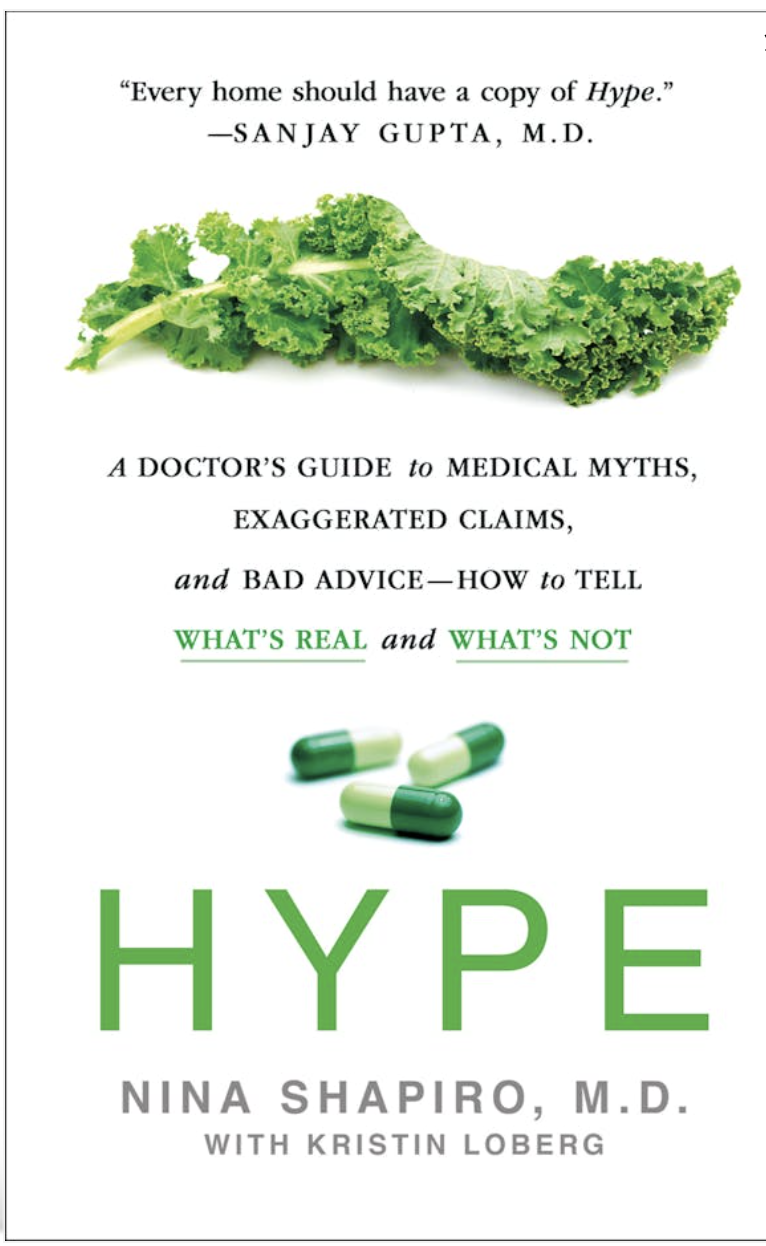
-
Title: It's Probably NothingPublisher Running PressYear published 2021Book image
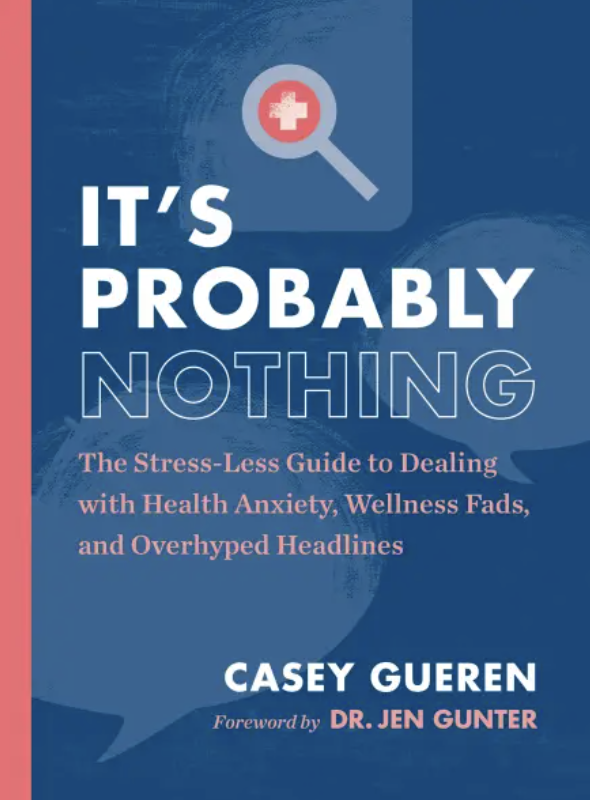
-
Title: Viral BSPublisher Johns Hopkins University PressYear published 2021Book image
